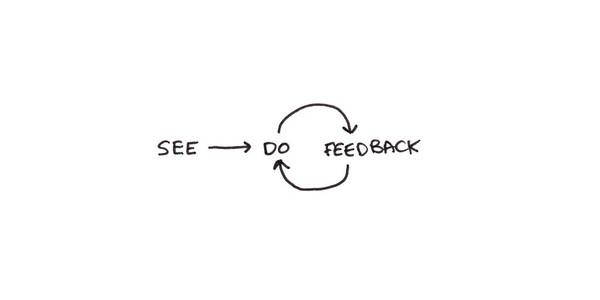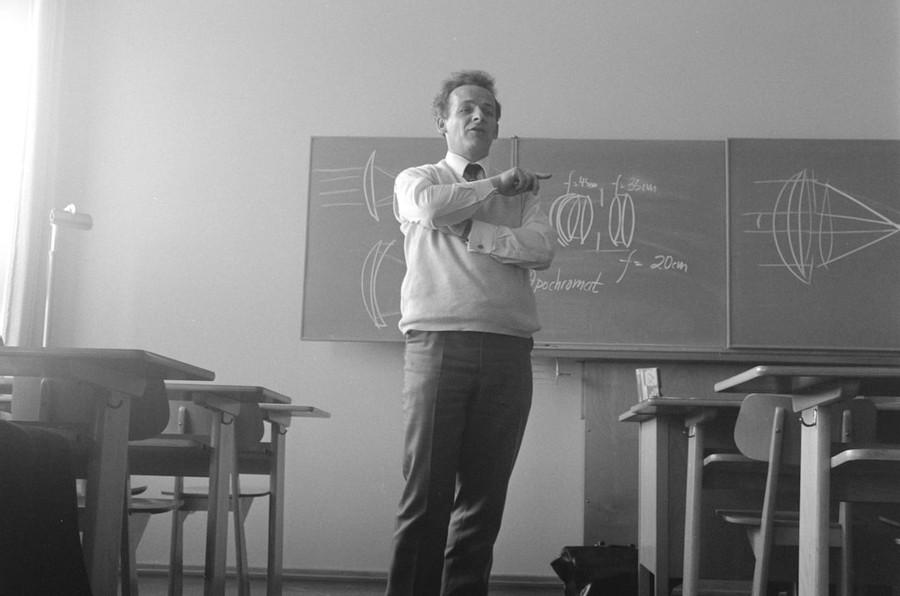See-Do-Feedback: The Right Way To Practice - Scott H Young
Curated from: scotthyoung.com
Ideas, facts & insights covering these topics:
5 ideas
·2.59K reads
36
Explore the World's Best Ideas
Join today and uncover 100+ curated journeys from 50+ topics. Unlock access to our mobile app with extensive features.
The Foundation For Effective Learning Is Practice
You get good at things by doing them. Yet within this simple observation is a maze of complexity. How should you practice to get the most improvement with the least time and effort?
Good practice has three components:
- See . Look for an example of how to solve a problem.
- Do . Solve the problem yourself.
- Feedback . Check whether you got the right answer.
104
625 reads
1. See: The Power Of Examples
People don’t solve problems by building general-purpose problem-solving skills. Instead, decades of research shows that experts in domains as diverse as chess, programming, and medical reasoning get good by acquiring tons of specific patterns of knowledge.
99
635 reads
2. Do: The Need For Retrieval
Of course, if watching alone led to skill, we wouldn’t need to practice at all. We could watch cooking shows and instantly become chefs or see a football (soccer) match and pick up dribbling skills. Acquiring patterns isn’t enough—the knowledge needs to become an automatic skill in order to be useful.
Therefore, the best approach to learning is to see a few examples of the pattern to be learned. If the pattern is complicated and you can’t remember it all at once, doing it once or twice with examples on hand is helpful.
98
481 reads
3. Feedback: Check Your Work
Finally, you need to get feedback on your practice. If the problem is something with a straightforward, unique answer, seeing the correct solution is enough. For skills with gradations of performance or more subjective measures of success, a teacher, tutor or coach can give you the feedback you need.
Feedback is vital for a few reasons. First, it can correct for errors. Making mistakes when learning can actually be beneficial—if there is quick feedback.
Second, feedback can train your unconscious learning system. The procedural learning system of the brain operates through rewards.
92
412 reads
Implementing The Loop
A loop like this can be applied to many different skills and subjects:
- Programming : See a particular command, data structure or design pattern; implement it yourself; then check to see that it works properly.
- Languages : See vocabulary, phrases and grammar; test it out in a conversation, and check whether you are properly understood.
- History : Read a book, write a passage explaining the main points, and check back to see what you’ve missed.
- Business : Learn a new management technique, implement it within your company, and see how it performs.
108
438 reads
IDEAS CURATED BY
CURATOR'S NOTE
How should you practice to get the most improvement with the least time and effort?
“
Hatim Bootwala's ideas are part of this journey:
Learn more about strategy with this collection
Cultivating a growth mindset and embracing challenges
Developing adaptive thinking and problem-solving skills
Effective learning frameworks and approaches
Related collections
Similar ideas
Read & Learn
20x Faster
without
deepstash
with
deepstash
with
deepstash
Personalized microlearning
—
100+ Learning Journeys
—
Access to 200,000+ ideas
—
Access to the mobile app
—
Unlimited idea saving
—
—
Unlimited history
—
—
Unlimited listening to ideas
—
—
Downloading & offline access
—
—
Supercharge your mind with one idea per day
Enter your email and spend 1 minute every day to learn something new.
I agree to receive email updates





